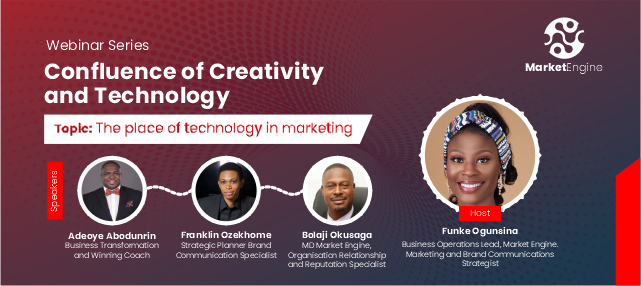Artificial Intelligence is making a strong statement, changing how industries have operated for ages, and introducing efficiency and innovation in existing processes. An area of application that’s fast becoming mainstream is AI Agents.
These software systems are designed to perceive their environment, analyse data, make decisions, and take actions independently to achieve predetermined goals. Unlike applications we are familiar with, which require human oversight and software updates, AI agents operate autonomously and continuously improve with experience.
Experts see AI agents as advanced systems that are based on technologies like machine learning and natural language processing, capable of combining tools with large language models (LLMs) to act based on user queries.
The relevance of disruptive technology like this in underdeveloped and challenging environments like Nigeria and across Africa cannot be overemphasised. Especially considering the mitigating factors of power cuts, frail internet connectivity, and staff shortages that businesses are up against. AI agents offer a very practical way to save time, efficiently utilise scarce resources, and maintain operational consistency even when human capacity is limited. They are fast becoming indispensable tools for businesses looking to prep up their operations, quicken research time, reduce repetitive tasks, cut costs, and serve customers better.
What are AI agents, and why are experts focusing on them?
By now, it may be quite apparent why the adoption of AI agents is increasing. Experts are emphasising that these systems are not just simple applications; they posit that AI agents possess the ability to “think, learn, and solve problems like a person” and improve over time, too.
I spoke with Srujan Gurram, a full-stack engineer at BrainDAO and team lead at IQ Wiki, who describes AI Agents as systems that integrate various tools with LLMs, allowing the LLMs to utilise these tools as needed based on user input, citing company-affiliated projects like IQ GPT, which integrates crypto-specific APIs.
Muyiwa Ogundiya, founder of Ginosko AI, focuses on simplifying AI for African businesses, defining AI agents within their mission to automate tasks traditionally handled by humans, specifically referencing his company’s voice AI product, Bamisoro.
“Genosko’s AI mission is to simplify AI for African businesses. We help them work smarter and grow faster. Our flagship product is called Bamisoro. It’s an AI call centre that automates inbound and outbound calls with human-like voice interactions tailored to African languages and accents,” says Muyiwa.
The growing focus on AI agents stems from their ability to perform tasks independently, reducing the need for constant human monitoring. By handling repetitive tasks and operating around the clock, AI agents enable businesses to optimise resource allocation and maintain service delivery, even when faced with infrastructure challenges. Experts see AI agents as a means for businesses to cut costs and improve efficiency.
A look at how AI agents are being deployed to drive success
Professionals, business owners, entrepreneurs, and even freelancers are deploying AI agents across a wide range of business functions, transforming operations and customer interactions:
Customer service transformation
AI agents provide 24/7 availability and instant responses to customer queries, manage FAQS, and handle basic troubleshooting. Muyiwa’s AI call centre, Bamisoro, automates inbound and outbound calls with human-like voices, including plans for local language support in Hausa, Yoruba, and Igbo, freeing human staff to focus on more complex issues. This leads to improved response times and customer satisfaction. AI agents can also personalise customer interactions, greeting people by name and suggesting items based on past purchases.
Muyiwa also shared a recent success story that demonstrates the real-world effectiveness of AI agents:
“We were able to carry out a campaign just today. We were able to initiate about 200 AI calls, of which 70 or 80 people picked up. Based on the objective of that campaign, about 70% of persons said they’d be interested in coming to that event… Already, someone has called me today that they would like to run a campaign for a big event at the end of the month, and they’re looking at thousands or tens of thousands of calls to go out.”
Marketing and sales acceleration
AI expert, Gurram of IQ Wiki, mentions some significant applications in digital marketing. He says AI agents can automate content posting on social media platforms like Twitter, Instagram, and TikTok. They can generate marketing copy for tweets or banners, making marketing easier and ensuring consistently high-quality output. In sales, AI agents can assist teams by identifying potential clients, nurturing leads, managing workflows, and automating lead generation and qualification processes.
He adds that AI redefines quality ratings of marketing content: “Now, by using AI, it would be hard to get below-average copies from it. Because it is a combination of the whole internet. So, now the new best is the average if you think about it.”
Streamlining operations and boosting productivity
AI agents can handle numerous behind-the-scenes tasks that typically slow down employees, such as data entry, sending invoices, booking meetings, and document processing. They can also automate HR tasks like resume screening, scheduling interviews, and onboarding new employees. By taking over these repetitive tasks, AI agents allow human staff to focus on higher-value, money-generating, or growth-focused work.
Gurram spoke excitedly about the time-saving aspect of AI agents. In his words, “With AI Agents, you can make it do almost anything. You just have to note it down. Are there any processes that you’re doing daily or periodically? You write it down. Write the steps for it, and you can always think if I can automate this, if I can create an AI Agent to let it do these processes automatically, you can save a lot of time.”
Enhancing data analysis and Business Intelligence
AI agents can analyse large datasets to find useful patterns, identifying what’s selling, who’s buying, and predicting needed changes. They provide real-time analytics and insights, often presenting results in an easy-to-read format, eliminating the need for the business owner to be a data expert.
Specialised industry applications
AI agents are being applied across diverse sectors:
- Finance/fintech: Detecting fraud by flagging odd transactions and assessing loan risk.
- Agriculture: Planning work based on weather and soil, spotting crop disease, optimising logistics to reduce food waste, and helping small farmers get better prices.
- Healthcare: Helping doctors spot problems faster by checking scans/results, aiding drug discovery, and offering basic health advice via chatbots.
- E-commerce/Retail: Predicting stock needs, tracking goods, processing orders, and providing personalised product recommendations.
- Real estate: Managing listings, scheduling tours, and providing property recommendations.
- Stock market: Buying and selling shares based on real-time data to manage investments.
- Logistics: Providing real-time updates, delivery tracking, and route optimisation.
The expert approach and innovation
Developing resilient and effective AI agents requires sophisticated approaches. Gurram highlights the challenge of making LLMs, which are inherently non-deterministic, perform tasks reliably. To address this, his team uses deterministic systems and frameworks, incorporating logic based on tool outputs.
They also utilise Retrieval-Augmented Generation (RAG) and vector databases to inject reliable, correct information alongside user prompts, mitigating issues of the LLM giving unreliable information or hallucinating.
Muyiwa says he faces challenges in obtaining localised datasets for voice AI, particularly for Nigerian accents, and has to create these datasets from scratch.
Meanwhile, a key innovation for Bamisoro is the focus on localised solutions, with plans to launch services in Nigerian languages like Hausa, Yoruba, and Igbo to bridge language gaps. Muyiwa is not stopping there. He’s also building supporting infrastructure, like the CRM built within Bamisoro for tracking customer interactions and responses.
He explains, “We built a CRM inside Bamisoro where you’re able to add customers or contacts and put tags on them. We’re still working on making it more dynamic, such that you’d have your CRM there, and you’d be able to check people who have bought from you, when was the last time they bought, and so on. Also, you’d be able to check things like: this call I initiated to this person, what was their response, was he happy, was he angry, etc?”
Read also: Nigerian CEOs steer towards AI and new horizons amidst economic tides
The tangible benefits of AI agents
Businesses adopting AI agents are experiencing significant benefits, leading to acceleration:
- Cost reduction: Lowering operational costs by automating tasks like customer support and data entry. This includes reduced waste in areas like inventory.
- Increased productivity and efficiency: AI agents handle repetitive tasks, freeing human staff for more strategic and revenue-generating activities. They also enable faster decision-making based on real-time data analysis.
- Enhanced competitiveness: Firms using AI agents can grow faster than rivals, serve more people, increase earnings, and build trust, giving them a competitive edge.
- Improved customer experience: Providing 24/7 service, faster responses, personalisation, and potentially multilingual support enhances customer satisfaction and loyalty.
- Supporting digital transformation: AI agents help traditional businesses modernise their operations and transition to digital processes.
- Attracting investment: The AI agents market is viewed as a high-growth sector, attracting both local and foreign investors.
Hurdles to overcome in the implementation of AI agents
While the potential is vast, experts acknowledge the hurdles in implementing AI agents:
- Data quality and availability: AI systems require clean, up-to-date data for effective training and performance. Experts must ensure systems are trained with high-quality data, which can be challenging to collect and maintain in some regions.
- Talent gap: There is a shortage of skilled AI experts and users. This requires investment in training or hiring expertise, which can be costly. Experts are needed to build, manage, and maintain these systems.
- Technical hurdles: The non-deterministic nature of LLMs can lead to unreliable or varying results. Experts address this by designing resilient systems using deterministic elements and evaluation frameworks. Integrating AI agents with older, legacy systems can also be complex.
- Awareness and adoption resistance: Many businesses lack a deep understanding of AI’s potential, leading to scepticism or resistance, especially in traditional sectors. There can also be a fear of job displacement. Educating the market and demonstrating value is crucial.
- Cost: High initial investment for development and implementation can be a barrier, particularly for SMEs. Experts look for ways to leverage open-source or cloud tools and seek funding. Ongoing maintenance adds to the cost.
- Ethical, regulatory, and privacy concerns: Issues like bias in AI models, potential for discrimination, lack of clear regulations, and data privacy fears exist. Experts must build fair, transparent systems that protect data and comply with evolving laws.
- Infrastructure: Limited or unreliable internet access and an underdeveloped technical infrastructure can impact deployment and performance.
Muyiwa specifically mentions obtaining localised voice datasets and securing funding as key challenges for Genosko AI. Gurram highlights defining the problem clearly and handling the non-deterministic nature of LLMs as major challenges in building AI agents.
“The major problem we have faced is to make the LLM work as we want it to. So, since LLMs are non-deterministic, you can ask a question to an LLM and it would answer, but there’s no guarantee that it would answer the same the next time that you ask,” points out Gurram.
The future vision for AI agents
Experts see AI agents becoming increasingly integrated into daily business operations. Gurram anticipates future AI agents being able to interact directly with computer UIs and desktop applications, utilizing existing human-made interfaces.
He notes that many companies are already integrating AI into their applications. The growth potential for AI agents is immense, with adoption only expected to increase. Experts like Muyiwa are focused on developing AI solutions that support multiple languages to engage a diverse customer base.
Conclusion
AI agents, developed and deployed by experts, represent a powerful force for business transformation. They offer solutions to critical challenges faced by businesses, particularly in underdeveloped markets like Nigeria and Africa, driving efficiency, reducing costs, enhancing customer experiences, and unlocking new opportunities for growth and competitiveness.
While challenges related to data, talent, infrastructure, and regulation exist, businesses do not need to wait for perfect conditions to begin leveraging AI agents. Starting with automating simple tasks, testing results, and iterating can lead to significant gains over time.
By addressing hurdles proactively and embracing innovation, businesses can position themselves at the forefront of the digital transformation. The rise of AI agents is not just a trend; experts confirm it is a move towards smarter, more competitive business.






Comment
No comments found.